U.S. juries awarded three verdicts of $1 billion or more for the third straight year in 2013, topped by a $1.2 billion award against Dow Chemical Co., the largest ever in a price-fixing case.
Second was $1.1 billion awarded by a Florida jury in July against Trans Healthcare Inc. to the estate of a woman who died following multiple falls — the largest-ever against a nursing home. Lennar Corp. won the third, $1 billion in a suit in which a California developer and his company were accused of defaming the homebuilder as part of an extortion scheme.
The nine verdicts of $1 billion or more in the past three years contrasts with the total of three such awards in the prior five years, according to data compiled by Bloomberg. The rise of billion-dollar verdicts mirrors the increase in the cost of settlements for allegations of corporate misconduct related to the financial crisis, said Carl Tobias, a law professor at the University of Richmond.
“There is some sort of a punitive aspect,” Tobias said. “Juries are more and more willing to require defendants to pay more if they’re bad actors, or there’s a perception that they’re bad actors.”
These largest awards of 2013 came as patent verdicts returned to normal.
Patent Infringement
The top three jury verdicts of all kinds in 2012 were in patent cases, each for $1 billion or more. The largest patent award in 2013 was for $290 million, for Apple Inc. against Samsung Electronics Co. over smartphone technology that came in the retrial of a portion of one of the 2012 verdicts.
Four of the top 50 jury verdicts of 2013 were in patent- infringement cases, down from 11 in 2012, according to data compiled by Bloomberg.
Overall, awards of $100 million and up by U.S. juries fell one-third, to 20 in 2013 from an unusually high 31 in 2012. Juries in the past 15 years returned an average of 20 verdicts of $100 million or above.
Patent verdicts were a large reason for the drop, as awards in that range fell to two last year from eight in 2012.
The jumbo verdicts in 2012 probably were an aberration, said Douglas Cawley, who won the second-largest patent verdict in 2013, $173 million for ParkerVision Inc. against Qualcomm Inc. over wireless-network technology.
“Billion-dollar verdicts have been awarded occasionally. but it was more of a coincidence that you had three of them in 2012,” Cawley said in an interview.
Litigation Pipeline
The decline in 2013 doesn’t indicate a trend, said attorney William Lee of WilmerHale, who represented Apple.
“It’s the chaos theory working,” Lee said in an interview. “It’s hard for events to occur evenly.”
Massive damage claims over patents remain in the litigation pipeline and will continue to bring large verdicts, said Lee, who has nine such cases set for trial in the next year.
“If you look at the last 20 years, there has been a real increase in big cases and big verdicts, particularly in the last five years,” he said. “It’s an indication of the importance of intellectual property.”
A settlement in a case brought by Pfizer Inc. may have averted the year’s best chance for a billion-dollar verdict. Pfizer won a $2.15 billion settlement over its heartburn drug Protonix during trial before a jury could deliberate.
Generic Drugs
Pfizer claimed that the generic drug companies Teva Pharmaceutical Industries Ltd. and Sun Pharmaceutical Industries Ltd. infringed the patent for the brand-name drug. A New Jersey jury in 2010 had rejected the defense claims that the patent was invalid because of obviousness.
Pfizer and its partner, Takeda Pharmaceutical Co., began a separate trial in June seeking as much as $2.5 billion in damages from the defendants for selling generic Protonix before the patent expired.
The damages dispute never went to the jury.
“On the seventh day, our expert put in his number of $2.5 billion,” said Lee, who represented the patent-holders. “It settled on the seventh day.”
Pfizer announced on June 12 that Teva agreed to pay $1.6 billion and Sun $550 million to settle the case, which began in 2004. Under the agreement, 64 percent of the $2.15 billion accord would go to Pfizer and the rest to Takeda.
Big Settlement
The settlement dwarfed all the 2013 patent verdicts and was twice as high as the largest in 2012. Had the jury awarded the damages sought, it would have exceeded the largest-ever patent verdict, $1.67 billion against Abbott Laboratories, which was later reversed.
Antitrust awards provided three of 2013’s mega verdicts, led by the $1.2 billion assessment against Dow Chemical, accused of conspiring with four other companies to fix prices on chemicals used to make urethanes.
The Kansas City, Kansas, jury awarded $400 million. The amount was tripled to $1.2 billion under U.S. antitrust law.
The plaintiffs, a class of industrial purchasers of the chemicals used to make such products as cushions, auto seats and insulation, had settled with the other defendants for a total of $139 million before trial. The final judgment was reduced to reflect the settlements.
Dow appealed and “has always denied plaintiffs’ allegations of price fixing,” Louise Adhikari, a company spokeswoman, said in an e-mail. The matter was “thoroughly investigated” by the U.S. Justice Department from 2005 to 2007 and no charges were brought, she said. “Dow should not be held liable in the civil case.”
Texas Jury
In the other two antitrust cases, a jury in Texas awarded $113.5 million in September in a claim that Becton Dickinson & Co. tried to monopolize the safety-syringe market. The verdict is subject to trebling to $340.5 million. Becton Dickinson said it would appeal.
Two Chinese vitamin C makers in March lost a $162.3 million verdict, after tripling, in a price-fixing claim brought by a class of U.S. customers. The award, since cut to $158 million to reflect prior settlements and lawyers’ fees, has been appealed.
All three were dwarfed by the $5.7 billion Visa Inc.- MasterCard Inc. settlement with merchants over credit-card swipe fees. It was reached in 2012 and approved in 2013.
Rare Verdicts
Such big antitrust verdicts were rare in previous years. Since 2000, there have been eight of $100 million or more, none from 2004 through 2011.
Then came one in 2012 and the three in 2012, which don’t indicate a wave of antitrust awards, said Richard Koffman, one of the plaintiffs’ attorneys in the Dow case.
More might happen in the future as plaintiffs’ lawyers avoid weaker cases to concentrate on ones more likely to reach trial and defendants become less likely to settle, he said in an interview.
U.S. Supreme Court decisions on class actions and antitrust, including one in 2007 that increased the evidence needed to defeat a motion to dismiss, have raised the bar on which claims are filed, Koffman said.
“We think longer and harder on the cases we bring, whether we have enough to get past the evidentiary standard you didn’t have before 2007,” Koffman said.
Dow argued that the judge in its antitrust case shouldn’t have allowed it to go forward as a class-action case. Dow cited Supreme Court decisions, including one in 2013 in an antitrust claim involving Comcast Corp. restricting class certifications.
Comcast Case
“We think it doesn’t have any effect,” Koffman said of the Comcast decision. “The judge decided it didn’t affect our case.”
This series of decisions has left some defendants more willing to go to trial and take a chance on a reversal of any adverse verdict on appeal, he said.
“It might be more likely that defendants would roll the dice,” Koffman said.
The largest verdict of 2013 is In re Urethane Antitrust Litigation, 04-md-01616, U.S. District Court, District of Kansas (Kansas City). The largest patent verdict is Apple Inc. v. Samsung Electronics Co. Ltd., 11-cv-01846, U.S. District Court, Northern District of California (San Jose).
–Editors: Charles Carter, Mary Romano, Peter Blumberg




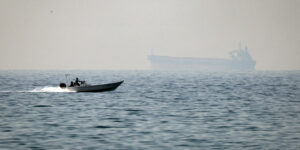
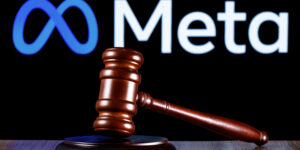


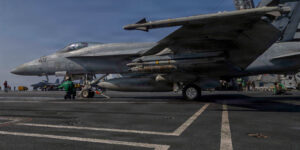
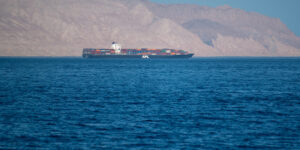






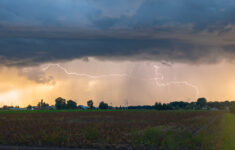
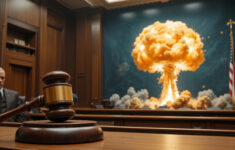


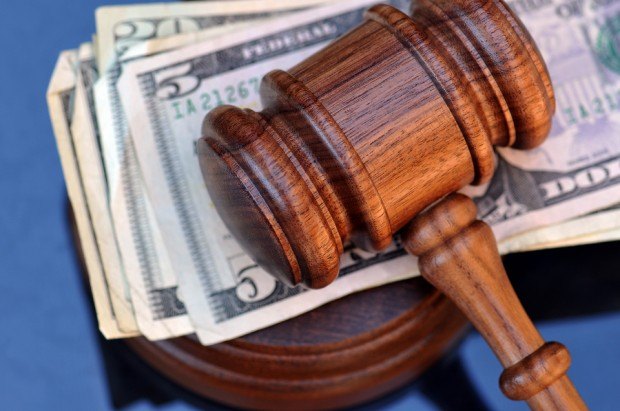
 Machine Learning for Mutuals: What’s Working, What’s Not, and What’s Next
Machine Learning for Mutuals: What’s Working, What’s Not, and What’s Next 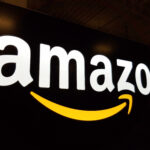 Hackers Used AI to Breach 600 Firewalls in Weeks, Amazon Says
Hackers Used AI to Breach 600 Firewalls in Weeks, Amazon Says  From Skill to System: The Next Chapter in Insurance Claims Negotiation
From Skill to System: The Next Chapter in Insurance Claims Negotiation 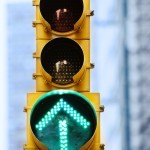 NYC to Install Red Light Cameras at 600 Intersections by Year End
NYC to Install Red Light Cameras at 600 Intersections by Year End 




